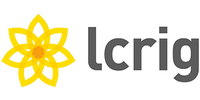Dynamic assignment is a powerful tool that can provide detailed predictions of travel time across a network over time. However, until now, non-conformance with the Department for Transport's 'Transport Appraisal Guidance' (TAG), specifically regarding convergence, stability, and robustness, has largely restricted the application of dynamic assignment to operational modelling, development planning and event planning.
This webinar outlines a method, developed by Aimsun in collaboration with the DfT, that ensures dynamic assignment models can reach more stable results. The aim is to provide principles and best practice for practitioners to follow when developing dynamic assignment models, particularly in relation to model stability and convergence.
Aimsun brings over 27 years' of experience developing, licensing, and using dynamic transport modelling software, internationally. Our product developers and specialists come from a wide range of backgrounds including practical transport planning experience and academic applications of transport modelling software for new modes such as connected and autonomous vehicles. Our team of in-house developers ensure that we push the boundaries of transport modelling, applying cutting edge approaches and techniques to meet the constantly changing needs of the sector, whether it be for more accurately capturing traffic behaviours of traditional and new modes or deploying real-time traffic digital twins for automated traffic management.
This webinar is based on Aimsun guidance, developed in association with the UK Department for Transport, for the development of dynamic transport models for the purposes of transport appraisal. As such, the methodology we present has been overseen by those who oversee Transport Appraisal Guidance.

